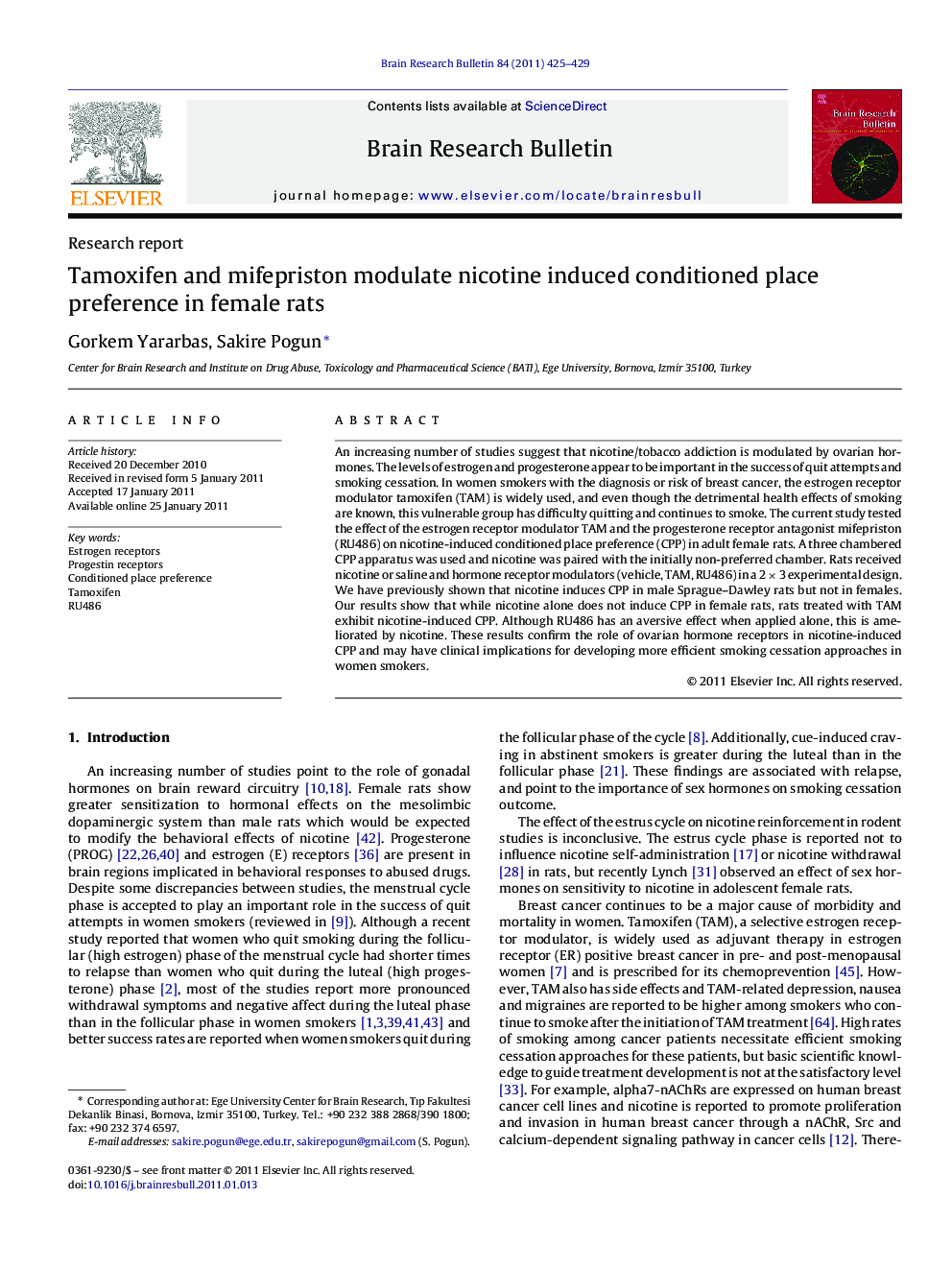| Article ID | Journal | Published Year | Pages | File Type |
|---|---|---|---|---|
| 4319097 | Brain Research Bulletin | 2011 | 5 Pages |
An increasing number of studies suggest that nicotine/tobacco addiction is modulated by ovarian hormones. The levels of estrogen and progesterone appear to be important in the success of quit attempts and smoking cessation. In women smokers with the diagnosis or risk of breast cancer, the estrogen receptor modulator tamoxifen (TAM) is widely used, and even though the detrimental health effects of smoking are known, this vulnerable group has difficulty quitting and continues to smoke. The current study tested the effect of the estrogen receptor modulator TAM and the progesterone receptor antagonist mifepriston (RU486) on nicotine-induced conditioned place preference (CPP) in adult female rats. A three chambered CPP apparatus was used and nicotine was paired with the initially non-preferred chamber. Rats received nicotine or saline and hormone receptor modulators (vehicle, TAM, RU486) in a 2 × 3 experimental design. We have previously shown that nicotine induces CPP in male Sprague–Dawley rats but not in females. Our results show that while nicotine alone does not induce CPP in female rats, rats treated with TAM exhibit nicotine-induced CPP. Although RU486 has an aversive effect when applied alone, this is ameliorated by nicotine. These results confirm the role of ovarian hormone receptors in nicotine-induced CPP and may have clinical implications for developing more efficient smoking cessation approaches in women smokers.
